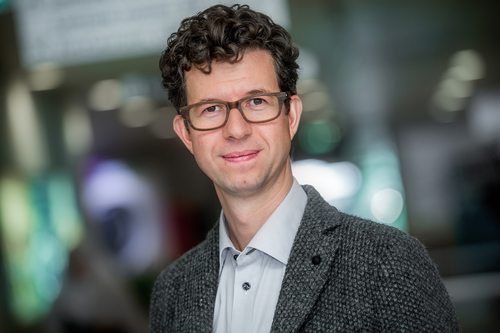Most workers would prefer to be replaced by a robot than by another human
While people generally prefer to see jobs go to people rather than to robots, this preference reverses when they consider their own jobs. In that case, they prefer to be replaced by robots, new research from Stefano Puntoni, Professor of Marketing at Rotterdam School of Management, Erasmus University (RSM) reveals.
In an article published in Nature Human Behaviour today, coauthored by Armin Granulo and former RSM faculty Christoph Fuchs, findings show that people experience more negative feelings when they are replaced by another person than when they are replaced by a robot. This creates a psychological incentive for people to prefer being replaced by robots.
However, while comparing one’s abilities to a robot may be less of a concern to people’s self-worth in the short run, robotic replacement is perceived as more threatening to people’s economic situation in the long run.
“This is the first paper to explore the unique psychological correlates of technological unemployment. As more and more occupations are affected by automation, this is an increasingly important topic. Interestingly, when technology replaces human workers, it has a unique psychological effect. People realise that the differences in abilities between robots and themselves might not be short-lived but permanent, indicating skill obsolescence,” says Professor Puntoni.
“We hope that, particularly in times when policymakers are discussing strategies intended to support workers who have been displaced by technology, our work encourages more research on the psychological consequences of technological unemployment before technological progress disrupts specific jobs and occupations.”
The researchers indicate that their findings can help develop programmes to cope with negative consequences of workers being replaced by intelligent machines. Such programmes can help to reemploy job seekers and reduce negative effects on mental and physical health.
For instance, the research shows that those workers who attribute their job loss to automation would benefit from resources wholly dedicated to interventions targeted at upgrading skills and retraining.
As technological progress is expected to affect millions of workers in a wide variety of occupations in the coming decades, it is important for the stability of society that we understand potential threats to the psychological wellbeing of affected workers, and how this transition will affect their long-term economic prospects.
/ENDS
For more information or to speak to the researchers, contact Stephanie Mullins at BlueSky PR on smullins@bluesky-pr.com or call +44 (0)1582 790 706.
Rotterdam School of Management, Erasmus University (RSM) is one of Europe’s top 10 business schools. RSM provides ground-breaking research and education furthering excellence in all aspects of management and is based in the international port city of Rotterdam – a vital nexus of business, logistics and trade. RSM’s primary focus is on developing business leaders with international careers who can become a force for positive change by carrying their innovative mindset into a sustainable future. Our first-class range of bachelor, master, MBA, PhD and executive programmes encourage them to become critical, creative, caring and collaborative thinkers and doers. Study information and activities for future students, executives and alumni are also organised from the RSM office in Chengdu, China. www.rsm.nl
This press release was distributed by ResponseSource Press Release Wire on behalf of BlueSky Public Relations Ltd in the following categories: Consumer Technology, Business & Finance, Education & Human Resources, Manufacturing, Engineering & Energy, Computing & Telecoms, for more information visit https://pressreleasewire.responsesource.com/about.
